News Archive 2022
Recently funded grants
01/11/2022
Congratulations to three department members who recently received funding.
- ND EPSCoR $4,978.72 – Dr. Lu Liu
- National Security Agency $11,293 – Dr. Jeremy Straub
- ND EPSCoR $14,395 – Dr. Jun Kong
- ND EPSCoR $5,768 – Dr. Jun Kong
- ND EPSCoR $5,395 – Dr. Jeremy Straub
- Funding of 2 TAs for online course development for CSCI 372 – Dr. Zubair Malik
The ND EPSCoR State Office provides leadership and coordination to broaden and diversify ND's science, technology, engineering, and mathematics (STEM) workforce pathway from elementary through graduate school; supports and grows statewide STEM research efforts and competitiveness at participating institutions of higher education; and conveys the impact of STEM research, outreach, and workforce efforts to ND stakeholders.




NDSU team finishes second at cybersecurity competition

10/10/2022
A team of NDSU students recently placed second in the capture-the-flag cybersecurity competition at the BSides Portland Conference at Portland State University. More than 35 teams student and professional teams competed to solve real world cybersecurity challenges.
The NDSU team included students Ben Clark, Caden Schmandt and Cameron Kolodjski. NDSU students Danielle Hanson and Matthew Tassava also attended the conference.
“It was a great learning experience,” Clark said. “Opportunities like this are hard to come by. The challenges, labs, workshops and talks all were excellent.” Read more
NDSU to offer software engineering major
10/07/2022
NDSU is set to offer a Bachelor of Science degree in software engineering, starting in fall 2023. The program will be a joint offering of the Department of Computer Science and Department of Electrical and Computer Engineering.
“In recent years, the demand for software engineers has increased significantly across the United States. These positions require design expertise in both software and principles of hardware design,” said Ben Braaten, professor and chair of electrical and computer engineering. “The degree program is a great blend for careers in engineering, software development, cybersecurity, web development, mobile app development and gaming, to name a few.”
Software engineering involves the application of approaches to the development and maintenance of software systems. The degree is recommended for students who want careers as a software engineer or software developer. Read more
NDSU team wins National Cyber Summit Cyber Cup competition

10/04/2022
A team of NDSU students took first place in the academic division at the National Cyber Summit’s Cyber Cup cybersecurity competition. The competition brought teams from across the country to Huntsville, Alabama, where they demonstrated their cybersecurity prowess to solve a series of challenges.
The NDSU team was comprised of students Cameron Kolodjski, Cayden Schmandt, Jack Hance and Jonathan Rivard, who are all studying computer science. Nearly 40 teams competed across the academic and industry teams competition divisions.
“I’m really proud of us as a team. We’ve come a long way since I was a freshman,” said Schmandt. “I’m very thankful for the experience that NDSU and the Cybersecurity Student Association has provided for me as I’ve been working towards my degree and to build my skillset.” Read more
Challey Spotlight: Zia Muhammad

10/04/2022
The Challey Institute for Global Innovation and Growth is highlighting the impact of our faculty and students at NDSU and in the community. This month, we are shining a spotlight on Zia Muhammad.
Zia Muhammad is a first-year Ph.D. student studying computer science at NDSU. He grew up in Islamabad, Pakistan, where he completed his master’s degree in information security at the National University of Science and Technology and taught cybersecurity at Air University. He previously worked as a researcher at the National Cyber Security Auditing and Evaluation Lab in Pakistan. In August 2022, he came to the United States to pursue his doctoral studies at NDSU. As a Mancur Olson Graduate Fellow, he will engage with the ideas of the Challey Institute and participate in a graduate student reading group on “An Introduction to Public Choice.” Read more
CS student Amanda Fetzer awarded prestigious SMART scholarship

09/13/2022
Amanda Fetzer, a Bachelor of Science student at North Dakota State University was awarded the Department of Defense Science, Mathematics, and Research for Transformation Scholarship.
Fetzer is currently studying Computer Science, with a minor in Robotics. She said, “Ever since I first got into STEM, I wanted to learn about space and collaborate with NASA. Thanks to this SMART scholarship, that dream is now a reality.“
This award provides students with full tuition for up to five years, mentorship, summer internships, a stipend and full-time employment with the Department of Defense after graduation. This unique opportunity offers students hands-on experience at one of over 200 innovative laboratories across the Army, Navy, Air Force and larger Department of Defense. During summer internships, SMART scholars work directly with an experienced mentor, gaining valuable technical skills. After graduation Fetzer will work at the Kirtland Air Force research lab in Albuquerque NM.
The Department of Defense is committed to developing the Nation's STEM talent and is the largest employer of federal scientists and engineers with nearly 150,000 civilian STEM employees working across the Department. DoD STEM activities support this mission by providing authentic learning experiences through a variety of education and outreach initiatives, such as the SMART Scholarship-for-Service Program. For over a decade, SMART has trained a highly skilled STEM workforce that competes with the evolving trends of industry to support the next generation of science and technology for our nation.
For more information on the SMART Program or to learn how students can apply, please visit www.smartscholarship.org. The application is open annually from August through December.
Department welcomes three new members
08/31/2022
The Department of Computer Science is happy to announce three recent additions our faculty and staff.
Dr. Ajay Jha joins the department as an assistant professor. His research focuses on software engineering, testing, and maintenance, and he is particularly interested in test recommendation and reuse, test maintenance, and bug collection, characterization, and detection. Prior to coming to NDSU, he worked as a postdoctoral researcher at the University of Alberta in Canada and Kyungpook National University in South Korea. Dr. Jha also worked in the software industry for more than 5 years as a programmer, project manager, and business manager and served as a program committee member and reviewer for various conferences and journals. You can learn more about Dr. Jha on his website.
Deb Kvittum joins the department as our academic assistant. Before joining NDSU she worked at the Moorhead Public Library. When not at work she enjoys kicking back with her two cats and listening to an audiobook while knitting or crocheting.
Samantha Thompson joins the department as our business coordinator. She is a Fargo native and previously worked for a local precious metals company for over 13 years. In her free time she enjoys spending time with her two dogs, Logan and Diesel.
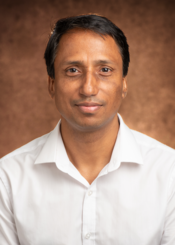
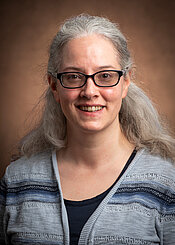
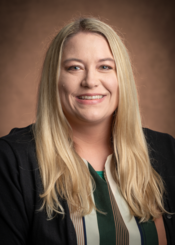
Dr. Jeremy Straub works to strengthen cybersecurity for U.S.
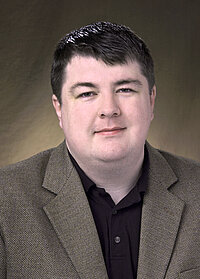
08/23/2022
NDSU assistant professor of computer science Jeremy Straub was recently featured in NDSU's Research and Creative Activity newsletter which showcases how NDSU researchers are tackling important issues. Straub has received approximately $1.75 million to date in awards from several federal agencies for his work on creating stronger protections for various sensitive systems.
Straub’s list of accomplishments in his six years at NDSU includes serving as director of the NDSU Institute for Cyber Security Education and as a Research and Challey Institute faculty fellow. He is the lead inventor on two U.S. patents and has published over 80 journal articles and hundreds of conference papers. Straub was included in a 2020 list of top-cited scientists worldwide compiled by Stanford University.
Straub’s work in cybersecurity relates to how to autonomously detect and protect computer systems from online attacks. He says protecting these systems is an important topic to look into now because much of the issue comes from design work done years ago. “It’s not so much that these weren’t good decisions back then, but that the environment is changing so rapidly that they aren’t adequately prepared for today’s threats.” Read more...
NDSU kicks off the new school year with welcome week

08/22/2021
Yesterday NDSU kicked off the fall semester with a variety of Welcome Week special events. This weekend hundreds of students moved into the residence halls, and today many experienced their first official college events on campus. Led by chair Simone Ludwig, students were greeted by members of the computer science department in the morning and introduced to the faculty and staff. Students learned about what the department has to offer new students, and what to expect in the coming years. We wish all students a productive and healthy new school year, and we look forward to getting to know all of you.
Dr. Jen Li receives funding to build an integrated research infrastructure for Edge AI.

08/03/2022
Professor Jen Li was recently awarded a four year multi-institute grant of six million dollars, funded through the Research Infrastructure Improvement Track-2 Focused EPSCoR Collaborations (RII Track-2 FEC). The goal of the project is to develop integrated research infrastructure and workforce in Edge AI. Based on the developed infrastructure, targeting the use case of diabetes care, the team will design, prototype, and test a low-cost smart wearable device for personalized diabetes management. The developed wearable diabetes device will enable significant cost reduction and high power efficiency compared to existing techniques. The leading institution is the University of South Alabama; the collaborating institutions are North Dakota State University, the University of Arkansas, the University of North Dakota, Alabama A&M University, and Nueta Hidatsa Sahnish College. Professor Li and Assistant Professor Danling Wang from Electrical and Computer Engineering are the principle investigators for NDSU. The team will work closely with multiple industry partners to adopt and adapt the developed Edge AI infrastructure in different use cases. Research outcomes of this project will accelerate the development of Edge AI and will increase the competitiveness of the United States in AI. The project also aims to integrate research, education, and workforce development in order to provide effective training at multiple levels. The project will develop an Education-to-Workforce Pipeline from high school to undergraduate, graduate, Post-Doctoral training, junior faculty, and industry practitioners.This award reflects NSF's statutory mission and has been deemed worthy of support through evaluation using the Foundation's intellectual merit and broader impacts review criteria.
Dr. Li is a full professor in the computer science department. Some of her research interests include large-scale distributed systems, semantic web technologies, social networks, information retrieval, and knowledge discovery.
NDSU student participates in forum on viewpoint diversity
06/27/2022
NDSU graduate student Pankaj Shah participated in the Forum on Viewpoint Diversity in Tech and Innovation on the campus of the University of California, Los Angeles. Shah, a master’s degree student in computer science, was one of 20 students from around the world selected for the program.
The forum brought together students and professionals to discuss diverse perspectives on policy and technical questions surrounding innovations in big tech, social media policy and the future of artificial intelligence.
Shah grew up in Biratnagar, Nepal, where he worked as a software developer for four years. He said the forum introduced him to a broader set of issues concerning the future of technology. Read more...

Dr. Anne Denton talks about computer science, artificial intelligence, and cultural impacts

06/14/2022
NDSU Computer Science Professor Dr. Anne Denton was live in studio on Afternoons Live with Tyler Axness for a fantastic conversation about a number of topics in the world of computer science including artificial intelligence and cultural impacts.
Listen to the full discussion.
Capstone students present at the Senior Design Expo
05/23/2022
On May 5th, the Computer Science Capstone teams culminated their semester long projects by demonstrating their work at the NDSU College of Engineering Senior Design Expo. Each of the eighteen capstone teams created a large poster highlighting what their project was, why it was important to their sponsor/client, and how the team built a solution that satisfied their client’s expectations. The solutions were also demonstrated to expo attendees using laptop computers at each booth. The teams also created three-minute video overviews that rolled continuously on overheard monitors at the expo.
Dr. Zahid Anwar featured in MoneyGeek article

05/11/2022
Zahid Anwar, associate professor of computer science and Challey Scholar, is featured in a recent MoneyGeek article titled “Identity Theft and Fraud,” by Kelli Bamforth.
Anwar was among 12 experts from across the country to be quoted in the story. He was included in the portion of the May 4 article titled “Expert Advice on Cybercrime and Credit Card Scams.”
“Cybercrime is indeed skyrocketing,” Anwar said. “Recent Federal Trade Commission data shows that in 2021, consumers lost $5.8 billion to fraud, which is a 70% increase over the previous year. A typical victim suffers a financial loss of more than $500. We are also seeing a whole new host of cruel scams becoming popular, such as fraudsters pretending to be collecting for charities or masquerading as government officials or employees of your utility company.”
He addressed several questions, including:
- What are warning signs that you have been a victim of a credit card scam?
- Which populations or transaction types are most affected by credit card scams?
- Are there credit cards that are more insecure than others?
- Am I responsible for credit card purchases I don't make?
Remembering Otto Borchert, beloved NDSU computer science alum

05/11/2022
Former NDSU computer science student and lecturer, Dr. Otto Jerome Borchert, passed away on Wednesday, May 4, after battling complications from kidney failure. He was 42.
Borchert graduated from NDSU with a BS, MS, and PhD in computer science and served as a lecturer in the department. He received the Ambassadors Excellence Award at NDSU in the spring of 2018. Borchert has been an assistant professor at Missouri Southern State University since the fall of 2018. He recently earned the “Outstanding Teacher Award,” presented by the Office of Academic Affairs in 2021 at MSSU. He won numerous awards and presented frequently at conferences. He wrote several academic articles and the textbook, ScaffoldSQL: Using Parson’s Problems to Support Database Pedagogy. He was respected by his students and faculty alike. He enjoyed being a part of campus life at MSSU; he was an active member of campus governance and advisor to the Computer Information Science club.
"Otto was a great friend and coworker. Always willing to help a student or others around the department yet ready to head off on a 'mission' to visit new things or just hang out with friends after work. He'll be greatly missed by everyone who knew him." said Guy Hokanson, systems administrator of the computer science department.
There will be a visitation from 9:30-10:30 a.m., followed by a memorial Mass at 10:30 a.m., Saturday, May 14, at St. Joseph Catholic Church in Ada, MN. Inurnment will be in Ada Municipal Cemetery. Read more about Otto's life.
NDSU students shine at national cybersecurity competition

05/02/2022
NDSU students took top spots in the spring 2022 National Cyber League individual competition. Eight students placed in the top 10% of more than 3,000 participants and two ranked in the top “Diamond-1” medal category.
An additional 11 students received diamond-level metals, 16 received platinum medals, 10 received gold medals, three received silver medals and four received bronze medals. Overall, 56 NDSU students participated in the competition.
National Cyber League provides students an exciting competition environment to learn and demonstrate their cybersecurity skills. The competition challenges students in 10 areas: open source intelligence; cryptography; cracking passwords; analyzing logs; analyzing network traffic; wireless access; forensics, scanning; exploiting web applications; and enumeration/exploitation.
Students earn points and are ranked in each category. Participants perform tasks as part of the competition’s challenges that correspond to tasks performed in real world cybersecurity industry jobs.
“The competition showcases students’ technical and problem-solving skills,” said Jeremy Straub, NDSU Cybersecurity Institute director and assistant professor of computer science. “NDSU students can show employers throughout the country that they are well prepared for real cybersecurity jobs using objective measures.”
The current semester’s level of participation surpassed NDSU’s previous record and places NDSU among the largest participating institutions nationwide.
Dr. Zahid Anwar gives talk as part of Indiana University's policy analysis and public finance speaker series

04/29/2022
Zahid Anwar, associate professor of computer science, and Challey scholar, presented his research titled “On Protecting Privacy and Safety without Stifling Innovation”, on April 29th, 2022 at the O’Neill School of Public and Environmental Affairs at Indiana University Bloomington where he was invited to give a talk as part of their Policy Analysis and Public Finance Speaker Series.
Anwar’s research focuses on cybersecurity policy and innovative cyber defense. The digital age spawns many disruptive technologies that can prove to be either marvels or mayhems for society. Technologies like DNA testing, virtual reality, big data analytics and electric cars promise to improve health, standard of living, climate change but if misused, can impact our safety and privacy. Ever since the Snowden revelations, the public has suffered a crisis of trust in digital technology forcing the government to enact regulations in many cases forcing many innovative startups to shutter their doors. In his talk Anwar discussed how digital technologies may continue to make progress in its respect for people and their rights, what remedial measures do consumers have and what role policy can play.
Dr. Jen Li gives seminar series presentation

04/25/2022
Professor Li recently presented "Using AI in Health – Creating Understanding with Knowledge Graph" as part of the department's seminar series. Artificial intelligence (AI) and related technologies are increasingly being applied to healthcare. These technologies have the potential to make healthcare more efficient, affordable, and personalized. In this talk, I will review our current research on using semantic AI technologies, specifically, ontologies and knowledge graphs to empower AI in health, along with opportunities, challenges, and practical implications.
Li is a professor in the Department of Computer Science at North Dakota State University. She joined NDSU in August 2008 after graduating with her PhD in Computer Science from University of British Columbia, Canada. Dr. Li’s research has focused upon the areas of Healthcare Informatics, Distributed Systems including Internet of Things (IoT), Peer-to-Peer (P2P) computing, Cloud computing, and Semantic Web technologies.
Dr. Simone Ludwig publishes book chapter
04/22/2022
Simone Ludwig, professor and interim department chair of computer science, has published a chapter in the new book Women in Computational Intelligence. The publication provides insight into women’s contributions to the field of computational intelligence and presents research on advances, applications, and challenges in computational intelligence. It includes topics such as fuzzy logic, neural networks, and evolutionary computation
Ludwig's chapter, “Intrusion Detection: Deep Neural Networks Versus Super Learning” address the Intrusion Detection System (IDS) protection achieved by monitoring the activity within a network of connected computers in order to analyze and predict the activity for intrusions. In the event that an attack would happen, the system would respond accordingly. In the past, different machine learning techniques have been proposed, which can be broken into clustering algorithms and classification algorithms. In this chapter, the CICIDS2017 data set is investigated, which contains benign and the most up-to-date common attacks resembling true real-world data. A machine learning approach is chosen whereby a comparison between a deep neural network approach and an ensemble method called super learner is performed. Furthermore, other algorithms such as gradient boosting machine, distributed random forest, and the XGBoost from the AutoML library are also compared.
The publication is part of the Women in Engineering and Science book series, which highlights women’s accomplishments in these critical fields. Each volume is dedicated to illuminating women’s research and achievements in key, targeted areas of contemporary engineering and science endeavors. The goal for the series is to raise awareness of the pivotal work women are undertaking in areas of keen importance to our global community.
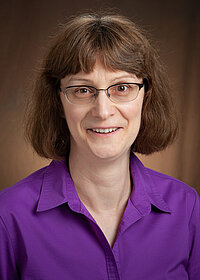

Graduate student to present research at ICSE 2022
04/12/2022
Anas Nadeem, a graduate student in the department of computer science, will be presenting his work titled ‘A Case for Microservices Orchestration Engine’ at the International Conference on Software Engineering (ICSE) 2022, the premier conference in software systems. ICSE provides a forum for researchers, practitioners and educators to present and discuss the most recent innovations, trends, experiences and concerns in the field of software engineering.
Microservices have become the defacto software architecture for cloud-native applications. A contentious architectural decision in microservices is to compose them using choreography or orchestration. Nadeem's research shows that orchestration engines such as Temporal make microservices easier to implement and debug by solving core issues of resilience and fault tolerance.
The research was supervised and co-authored by Dr. Zubair Malik, an assistant professor in the department who leads the Advanced Research in Software Engineering (ARiSE) group, which involves itself in exploring many aspects of modern and future computing applications. The current focus of the group is aimed towards directly enabling advanced manufacturing, enhancing software security, and improving fault tolerance of robots and autonomous computing agents. Learn more about ARiSE Lab's interesting research and projects.


Dr. Zahid Anwar presents at Infosecurity magazine Online Summit

03/29/2022
Zahid Anwar, associate professor of computer science, and Challey scholar, appeared in “Securing the Metaverse! The Cybersecurity Industry's Call to Action”, a panel discussion involving cybersecurity experts from the US, Canada, Belgium and the UK hosted by Infosecurity Magazine on March 22nd 2022 as part of their Spring online summit.
Despite the exciting possibilities the metaverse offers, there are substantial concerns around safety, privacy, and security. Anwar as part of a panel of cybersecurity experts explored the challenges around the metaverse, from verification and the dangers of impersonation to biometric information and how private data should be collected and used.
The talk drew from his previous article Privacy and Safety Issues With Facebook's New 'Metaventure' published on DarkReading. In this work Anwar describes the benefits and issues of privacy and safety in the metaverse. The metaverse is a mixed reality world where users can meet up using virtual reality headsets and aspects of social media, gaming, and cryptocurrencies come together. He details how the metaverse can allow for increased tracking and the collection of personal data, and has the potential to impact physical safety and cause addiction. Anwar contends that awareness on the part of the user along with appropriate controls and regulations would be needed to protect safety and privacy without stifling the innovative benefits of this technology.
NDSU listed among Cyber Skyline Cyber power rankings
03/24/2022
NDSU is ranked eighth in the nation and second in the central region out of more than 300 colleges and universities based on student success in the National Cyber League competition.
The NCL competition challenges students to solve problems in nine cybersecurity topic areas that are broadly representative of workforce needs.
According to Cyber Skyline, the rankings represent the ability of students to perform real-world cybersecurity tasks on the Cyber Skyline platform. Students identify hackers from forensic data, pentest and audit vulnerable websites, as well as recover from ransomware attacks.
“The Cyber Power rankings are a direct indication of the strength of NDSU’s cybersecurity students,” said NDSU Institute for Cyber Security Education and Research director, Jeremy Straub, assistant professor of computer science. “Our ranking shows that our students are ready to enter the workforce and excel in key roles in the incredibly high staffing demand area of cybersecurity.”
The National Cyber League was launched in 2011 by multiple agencies to drive the development of future cybersecurity professionals. More than 12,000 students participate in NCL annually from 600 academic institutions. NDSU was ranked 13th nationally in spring 2021.

Dr. Changhui Yan receives funding to create weed tolerant corn

03/23/2022
Professor Changhui Yan was recently awarded grant funding through the USDA’s Agriculture Research Service for his research to create weed tolerant corn. The objectives of the proposal are to develop and use machine learning algorithms to identify gene expression patterns associated with competition and to identify gene networks by which corn perceives and alters its expression when presented with inter -or intra-species competition. The goal of this research is to develop testable hypotheses for altering perception of competition in order to reduce corn yield losses.
Dr. Yan is a full professor in the computer science department. Some of his research interests include bioinformatics, computational biology, genomics, machine learning, data mining, big data, and cloud computing.
Computer science professor featured on Scholars Strategy Network

03/18/2022
Jeremy Straub, assistant professor of computer science, NDSU Cybersecurity Institute director and Challey Institute faculty fellow, was recently published on Scholars Strategy Network.
“Cybersecurity Incidents can be unwelcome wakeup calls for unprepared agencies,” was published on March 18 in the website’s foreign policy and security section.
In his brief, Straub describes the implications of a cyber-Pearl Harbor event for agencies. He also details how agencies can prepare for and respond to this type of an incident. The work draws from his previous article on this topic, which was published in Elsevier’s Technology in Society
Strong cybersecurity practices are key to avoiding incidents happening in the first place. However, Straub suggests that agencies should prepare for incident response. This includes avoiding activities that could be seen as covert or nefarious and cannot be explained by their mission, preparing for inevitable breaches to occur, treating every record like it might end up in the public’s hands and actively communicating with the public about their mission, methods and tactics.
Straub is the first faculty member from NDSU to be included in SSN’s network of America’s top scholars.
NDSU hosts 2022 ICPC north central NA regional programming competition

02/28/2022
NDSU was a site host for the 2022 International Collegiate Programming Contest (ICPC). Facilitated by Senior Lecturer Joseph Latimer, teams from NDSU, Bemidji State, and MSUM competed in the five hour event.The 'Yesql' team with members Sean Hagen, Erick Bickler, and Jack Hance placed 17th out of 95 teams in our region. Their team was also honored separately for having been the first team to solve one of the 13 problems.
The International Collegiate Programming Contest is an algorithmic programming contest for college students. Teams of three, representing their university, work to solve the most real-world problems, fostering collaboration, creativity, innovation, and the ability to perform under pressure. Through training and competition, teams challenge each other to raise the bar on the possible. It is the oldest, largest, and most prestigious programming contest in the world.
The contest fosters creativity, teamwork, and innovation in building new software programs, and enables students to test their ability to perform under pressure. The contest has raised aspirations and performance of generations of the world’s problem solvers in the computing sciences and engineering.
Dr. Pratap Kotala gives introduction to the dual credit course CSCI 160
02/09/2022
High school students in North Dakota are now able to take dual-credit classes online through NDSU's Office of Teaching and Learning.
There are currently 15 classes with more in development. These dual-credit classes are selected to offer exploratory experiences and to help students meet college course requirements. School districts, educators, and parents are encouraged to review the list of classes below to help students determine which classes fit with their student's high school requirements as well as the student's area of interest. Learn more on the Office of Teaching and Learning's website.
Research Experience for Undergraduates (REU) Program

The departments of Computer Science and Industrial and Manufacturing Engineering at NDSU as well as North Carolina A&T State University are pleased to offer a special research experience for undergraduates in Big Data Analytics and Machine Learning with an international experience in Chile that will be offered this summer (May 31 – August 5, 2022).
Some of the highlights are: exciting research projects, stipends up to $6,000, room and board provided, and travel funding up to $2,200.
Winners announced for Byte-le Royale 2022

02/04/2022
This past weekend, the NDSU student chapter of the Association for Computing Machinery (ACM) hosted Byte-le Royale, a 12-hour programming competition. Competitors in teams of up to 3 had to write an AI to play a video game and compete against each other to see who could create the best AI. The team of Elijah Satrom, Jean Eckelberg, and Carson Bring took first place, with Dylan Zapzalka and Daniel Johnson taking second, and Joshua Pompa, Deborah Pompa, and Ryan Doering finishing third. This year the competition had 8 teams compete, both remotely and in person.
"It was fun. I feel like we improved in our collaborative skills and using git. We worked hard and took first place," stated Elijah Satrom.
The ACM has been hosting the event since 2018 with the initial computational infrastructure built by computer science alum Jordan Goetze. The AI competition is a very well kept secret each year, which means that the objective and structure of the each year’s game are not revealed until the day of the event.



